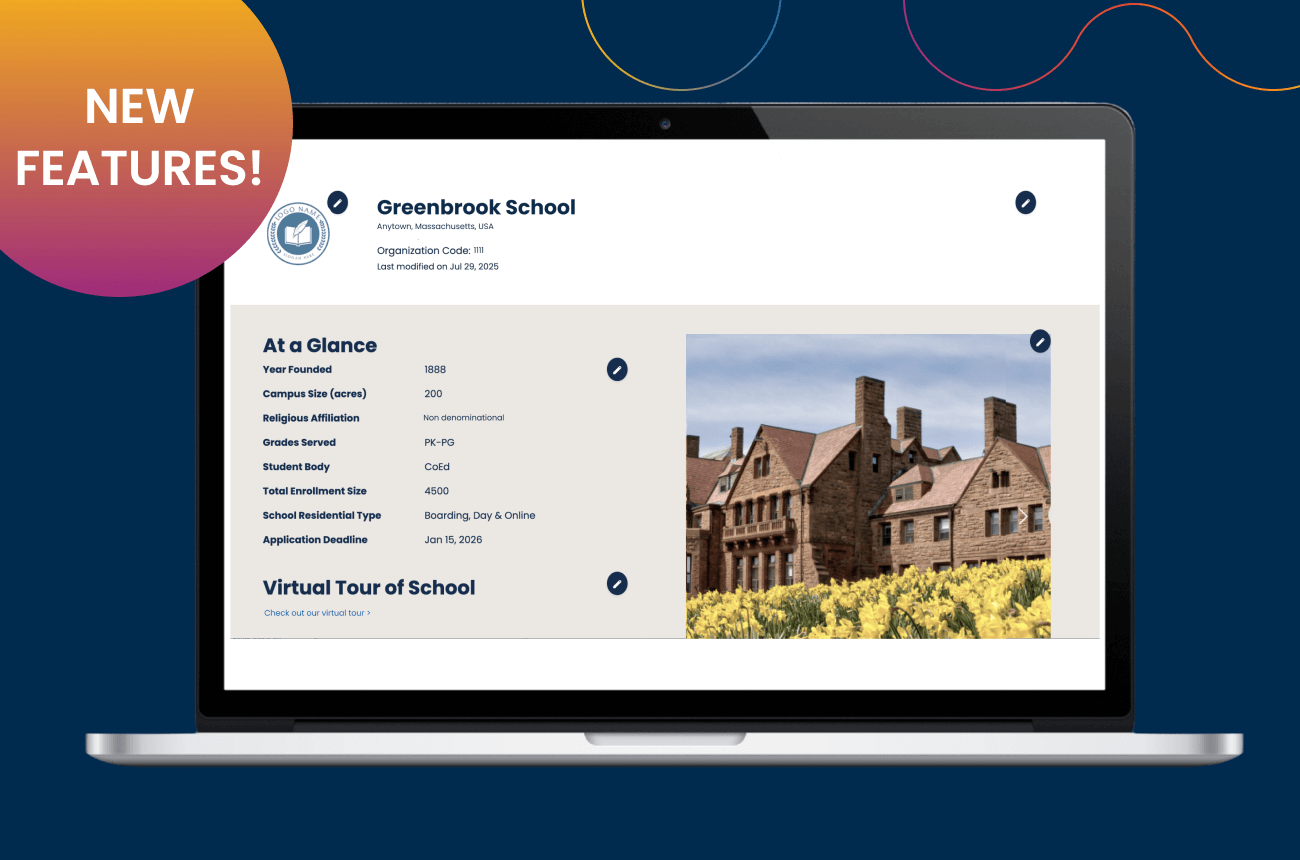True Grit - Measuring Markers for Success

"I have always maintained that, excepting fools, men did not differ that much in intelligence, only in zeal and hard work, and I still think this is an eminently important difference." Charles Darwin, quoted by Angela Duckworth, Ph.D.
The New York Times Notable Books of 2012 list was published this week, and it was good to see its recognition of Paul Tough’s new book, How Children Succeed: Grit, Curiosity, and the Hidden Power of Character. Surely many blog readers who have not yet gotten to this new book will recall Tough’s widely circulated article featured on the cover of the New York Times Magazine in October 2011: “What if the Secret to Success is Failure?”
That article, which sits at the center of the new book, describes the work being conducted at two New York City schools that serve very different populations: Riverdale Country School (an SSATB member) and KIPP middle school. School leaders at both schools, however, have teamed to develop new tools and techniques to both cultivate and assess a set of character—particularly so-called “performance character”—skills and attributes, believing them to be equally important or, if we look to the Darwin quote above, superior to traditionally defined intelligence in making for future success.
What makes the difference for students at KIPP middle school to “make it,” defined in their view as successfully completing college within ten years of completing middle school, isn’t their academic performance, but their self-control, perseverance, and grit.
At the same time, Riverdale head Dominic Randolph worries that that his school and schools like it offers “students a high probability of non-failure.
[But] the problem is that the best way for a young person to build character is for him to attempt something where there is a real and serious possibility of failure. In a high-risk endeavor, you are more likely to experience colossal defeat than in a low-risk one—but you’re also more likely to achieve real and original success.”
To this reader, the breakout star of Tough’s new book is Angela Duckworth, Ph.D., who is a member of an outstanding psychology department at U. Penn headed by the legendary Marty Seligman. Duckworth’s research has led her to agree with Darwin, as she explains:
“the problem, I think, is not only the schools but the students themselves. Here’s why: Learning is hard. True, learning is fun, exhilarating, and gratifying, but it is also often daunting, exhausting, and sometimes discouraging.
To help low performing students, educators and parents must first realize that character is at least as important as intellect.”
After identifying a core set of seven key character traits ("grit, self-control, zest, social intelligence, gratitude, optimism, and curiosity"), Duckworth narrows the list further to those first two when explaining what most makes for success in the face of difficulty.
For admission directors seeking to admit and enroll students who are most likely to succeed on their campus, and most likely to become successful in the wider world after leaving campus, Duckworth offers compelling guidance. As she explains in her TEDx talk at the Blue School, founded and funded by Blue Man Group (see sidebar to watch this highly recommended talk), self-control is a better predictor for school success (defined as GPA) than either IQ or grit but, she argues, grit is more meaningful for larger and longer-scale success.
Self-discipline is doing your homework when you need to, staying on a diet. Self-discipline is great for homework and GPA, but not such a great predictor for whether you are going to found Blue Man Group and stick with it.
Click here to get your Duckworth grit score.
In the ongoing work of the SSATB Think Tank on the Future of Admission Assessment, Duckworth has emerged as an important voice, and it is our aspiration and intent to invite her to meet with our group and help guide our project. Expect to read more about Duckworth and her research in future posts.
Surely this is not news to independent school admission offices; every one of us has recognized in the course of making our difficult decisions to admit or not to admit that we’d be greatly advantaged if we had an objective and measurable way to determine whether our applicants have what are sometimes called the “soft skills” or the intrapersonal intelligence—self-control and self-discipline, grit and perseverance, intrinsic motivation, self-efficacy, and locus of control—that would better engender their success.
If you are a school that has sought to evaluate applicants on these or related factors in a systematic, high-level way, we’d be eager to hear your experience. As is fairly well known within our association, Choate Rosemary Hall has undertaken such an experiment over the past decade in an extraordinarily impressive way, as part of a collaboration with Dr. Robert Sternberg, a former Choate parent, and at the time head of the PACE (Psychology of Abilities, Competencies, and Expertise) Center. Choate Admission Director Ray Diffley’s leadership of this project, and the lessons he has learned from it, have brought him to the leadership of our Think Tank.
Choate’s work expanding its range of admission assessments has had several iterations. In its earlier, expansive version, which included a wide array of student assessments and tasks, it found “three consistent variables among students best predicted a student’s ability to thrive at Choate:
- A good internal locus of control—the ability to shoulder the blame when things weren’t working, and also to take credit for one’s own successes.
- Sensible self-confidence. Students who were overly confident or lacked confidence did not adjust as well.
- A tacit knowledge about how the independent school environment worked. Students with such knowledge did a better job of mastering the environment over time.”
(Quoting "Testing for Success: Choate’s Successful Intelligence Project.”)
As was reported in the Journal of Educational Psychology, in an article entitled, “Are SSATs and GPA Enough? Predicting Academic Success in Secondary Schools" (Grigorenko, Jardin, Diffley, Shanahan, Goodyear, & Sternberg),
"...measures derived from the WICS and SRL theoretical frameworks substantially increased the predictability of Choate GPA. In addition, in conjunction with traditional measures of pre-Choate GPA and standardized tests, the measures of the PACE Battery predict not only the mean value of GPA, but also its rate of growth."
The magnitude of predictive validity is substantial, totaling up to 50% of the variance in Choate GPA. Although the best single predictor of Choate GPA appears to be middle school GPA, measures from the PACE Battery predict as much as or more variance than do indicators of SSAT. They also contribute substantially, independent of SSAT.
Currently, Choate administers to every applicant a significantly streamlined, and thus far more scalable, optional self-assessment for gathering this important information and broadening its evaluation of applicants. Students respond to about 40 statements describing their own views of themselves and the world, rating them on a strongly agree-strongly disagree scale. The survey is then generated into a report on each student, explaining where that applicant lies on a scale normed to their ages of self-efficacy, locus of control, and intrinsic motivation.
Again citing the Journal article, even these
"very brief self-reports forming the PACE SRL assessments contribute approximately 10% of unique predictive variance… although standardized tests provide important and valid information, it is crucial not to overstate their predictive power; after all, many other factors regulating students’ learning at Choate, among them, self-efficacy and locus of control, contribute to the academic success of students in the highly competitive environment of college preparatory schools."
Nobody would take from this research that the current SSAT isn’t a valuable element in an admissions portfolio, only that there is a substantial opportunity to broaden and improve our methods in evaluating students and predicting the future success of applicants.
As Ray Diffley says about the Choate experiment,
"What Choate is learning through collaboration with the Yale Child Study Center in looking at the results of the Choate Self-Assessment over the last few years is quite interesting.
Not only are there lessons learned (such as different norms for cultural cohorts and demographics; e.g. domestic applicants show notably higher levels of self–efficacy over international applicants) from this first foray into non–cognitive testing in a prep school environment, but Choate is finding the appetite for such measures quite significant among the 2,000 applicants they receive each year."
As part of preparing this piece and wanting a firsthand view of how this experience works, I inquired and Ray kindly welcomed me to complete myself, as if I were a high school applicant, the Choate Self-Assessment, and it is a thought-provoking experience. Some statements were very easy to rate, such as “I like to learn for the sake of learning;” others were much harder to decide about, such as “Many people fail to get the recognition they deserve no matter how hard they try."
Readers may be moderately reassured to learn that I rated in the “healthy” range on all three metrics, though regretfully I may be on the low end of healthy in self-efficacy and intrinsic motivation. (It is good to know the many opportunities I still have to improve my intrapersonal skills and attitudes.)
Ray explained to me that in an email that “anything above or below the healthy range would put up a flag for us to search for corroborative evidence in the interview, recs, teacher comments on transcript, family dynamic etc…and judge if it were a detriment (or strength) to the applicant's success in the Choate environment.”
Choate is extremely pleased with the way their quite simple student self-assessment serves them. The intrapersonal attributes information provided may not add very much predictive information to what are already the easy-to-make admission decisions, but it is quite useful in improving predictions of which harder-to decide-about applicants will disappoint or succeed, and what admission office wouldn’t benefit from that?




